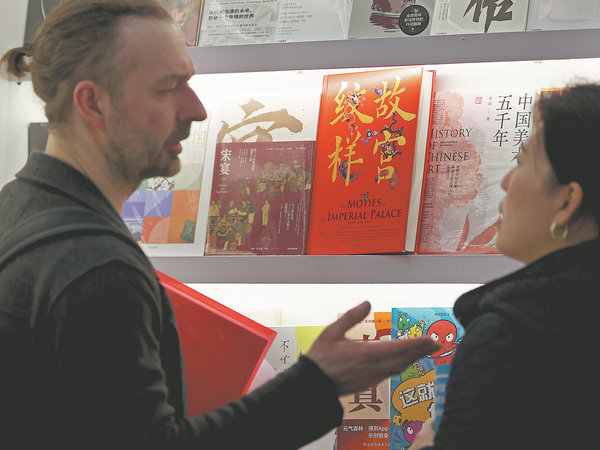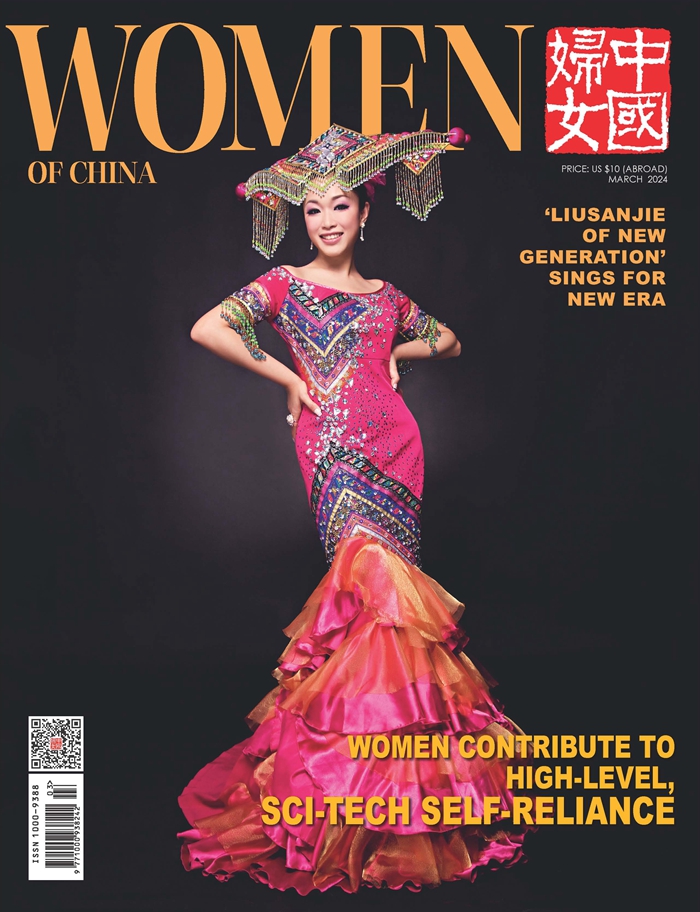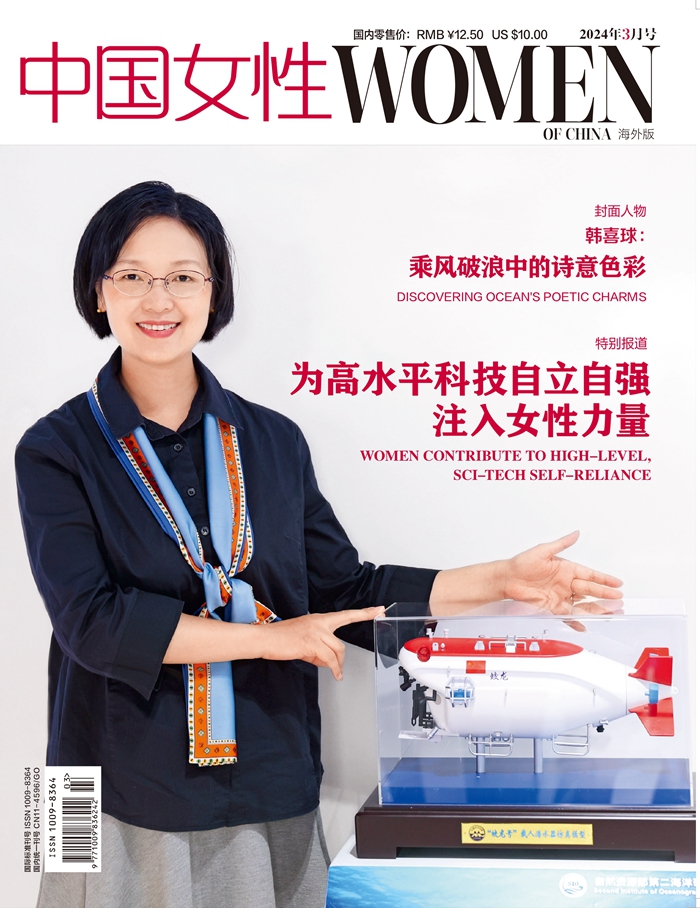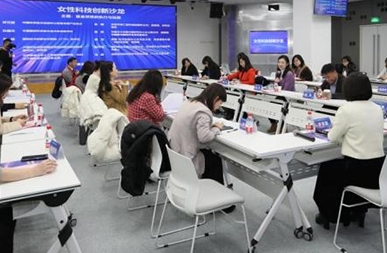Chinese Publishers Examine AI Potential at London Book Fair
 |
| An exhibitor talks with the staff member of a Chinese publishing house at the London Book Fair last week. [Photo/Xinhua] |
LONDON — As the publishing industry embarks on a new era driven by emerging technologies such as artificial intelligence, Chinese publishers, alongside their international counterparts, delved into the potential of innovative tools to revolutionize their practices at this year's London Book Fair, held from March 12-14.
In a panel talk held in China's exhibition area, professionals discussed the pragmatic application, potential, and inherent constraints of AI technology, which has drawn much attention at the LBF.
Publishers worldwide have been using AI-supported tools for editing, market analysis and online book recommendations for years. However, the recent surge in AI development has prompted the industry to contemplate the issue.
"This marks a shift in the publishing market toward more efficient, personalized and insightful processes and standards," Professor Shen Yang from Tsinghua University's School of Journalism and Communication said during the panel.
Despite his absence at the event, Shen delivered his speech through AI-generated videos, saying that collaborative creation between humans and AI could facilitate automatic text-to-multimedia conversion, thereby opening new revenue streams for the industry.
 |
| A panoramic view of the book fair held at Earl's Court in London. [Photo/Xinhua] |
Paolo Lombardi, director of technology innovation at the Taylor &Francis Group, a British publisher, says his company has been exploring AI integration with professional translation to improve efficiency. He hopes the collaboration between the company and its Chinese partners would enhance the accessibility of Chinese content for English-speaking readers.
"One of the most exciting things about AI today is it allows us to bridge across countries and improve communication," he adds.
Looking ahead, Lombardi emphasizes the "pivotal role" of human authors in content production, highlighting the "ethical responsibility of how to use this technology".
Besides AI taking center stage, the book fair also saw other trending technologies integrate with traditional publishing. Especially noteworthy were explorations by Chinese publishers.
One standout example was an immersive reading experience, The Classic of Mountains and Seas: An Illustrated Guide to Chinese Mythical Creatures, where scanning illustrations in the book with a smartphone revealed 3D representations of 40 creatures from ancient Chinese mythology.
Wang Xubin, president of the Zhejiang Ancient Books Publishing House, says that advanced printing technology can enhance printing quality and offer readers a clearer view of visual materials such as traditional art.
Having seen some experimentation by Chinese professionals, Lombardi expresses his excitement at their "exceptional minds" and dedication to understanding and trying new technologies.
At the three-day event, around 50 Chinese publishers displayed more than 3,200 China-themed titles and engaged in some 30 activities focused on international collaboration.
Peng Donglin, deputy editor-in-chief of the Foreign Language Teaching and Research Press, says that his agency has been discussing with major international partners, including Oxford University Press and HarperCollins Publishers, the issue of digital content licensing as part of its digitalization strategy.
Digital content cooperation can not only fuel business growth but also make it easier to bring Chinese publications to the global market, Peng says.
"We're delighted to see an increase (in participation) this year from China," says Gareth Rapley, director of the book fair. "Hopefully, this year is a building block to seeing further expansion of the Chinese participation here at LBF."
This year's LBF attracted more than 30,000 attendees, professionals, and 1,000 exhibitors from across the world.
(Source: Xinhua)
Please understand that womenofchina.cn,a non-profit, information-communication website, cannot reach every writer before using articles and images. For copyright issues, please contact us by emailing: website@womenofchina.cn. The articles published and opinions expressed on this website represent the opinions of writers and are not necessarily shared by womenofchina.cn.








 WeChat
WeChat Weibo
Weibo 京公网安备 11010102004314号
京公网安备 11010102004314号